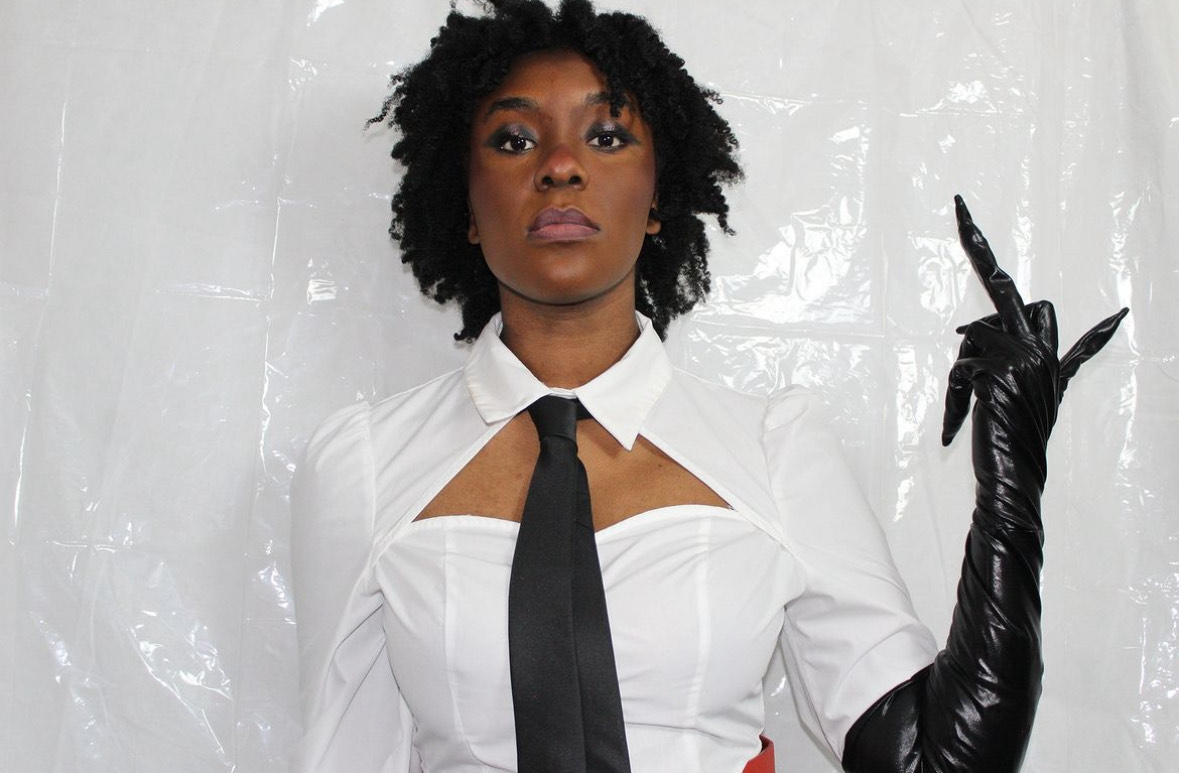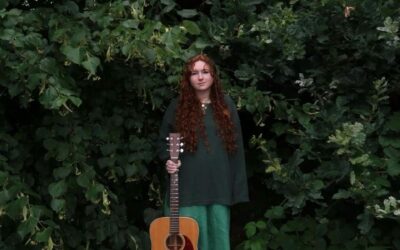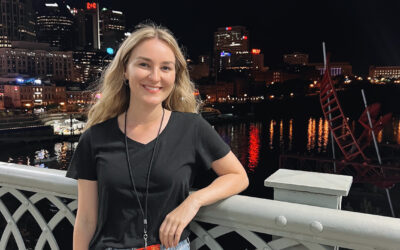In 2020 the UK Music Survey revealed almost 1 in 4 disabled people in the music industry has faced accessibility issues at work. 5678 Mag spoke to two female artists with disabilities in 2024 to find out what their lived experience has been.
Anusha
26-year-old Anusha is an Alternative Rock musician campaigning for her accessibility rights. The Peckham based (but Windsor born and bred) artist is striking off venues that refuse to meet accessibility needs.
The musician has Hypermobility alongside a Heart Looper, which means she is at high-risk for COVID-19 and will sometimes struggle to walk long distances.
“I do feel like I lose social capital by not going out and performing at these venues, but I’d just rather not! I’ve learnt how to do virtual performances at home. It’s been tiring, but I’ve seen success with it.”
Anusha
She continued: “It’s not only close to my heart because I believe in COVID-19 safety for myself and my high-risk fans, but it puts MY mind at ease. It means I can be safe.”
Anusha says she’s made multiple suggestions to music venues on how to host safe and accessible events, such as outdoor concerts and drive up performances, which are often met with a lack of enthusiasm. The artist tells us she’s often left feeling like an event organiser and safety officer as well as being the performing artist at her own shows.
“Venues need to think outside of the box. Yes, ramps, masks and air purifiers would be great, but how can music be fun for people with accessibility needs?”

Anusha explained that she’s sympathetic to the current funding crisis small music venues are facing. According to the Music Venue Trusts most recent annual report, over a third of UK grassroot venues are at a loss, with 125 venues forced to close their doors last year.
Anusha thinks that a lot of people enjoy exclusivity within the music industry.
“It’s that idea that an individual is special because they have access to an event not everyone can go to. Event organisers rely on that. But maybe if they made events accessible in price and physically then more people would want to go!” she explains.
Music has given Anusha an avenue to share her lived experience of being a disabled musician. After a disagreement with her roommate, Anusha wrote her latest single ‘Burden’.
“I think a lot of disabled people have had issues with their roommates, whether it be about risk of infection or accessibility or ableism.”
Now, the artist is collaborating with other disabled creatives on the ‘Burden’ music video by featuring the artists just ‘doing their thing’.
She explained “Burden isn’t about me, it’s about this universal experience that disabled people face. So I thought, let’s get disabled people involved.”
According to Youth Musics research into the lived experience of disabled musicians in 2020, 80% of disabled musicians said they had a positive experience of making music, but faced barriers such as accessing venues and rehearsal spaces, funding, finding adaptive instruments and equipment and accessing music lessons.
Katja
Katja Macabre is also a disabled Alternative Punk-Rock musician shouting about accessibility in the industry. The 25-year-old Brighton based musician says she is ‘done apologising for making people uncomfortable’.
“I make music that is fun, feminist and unapologetic. Your dad would probably hate it.”
Katja
She describes her sound as: “driven by politics and feminine empowerment; we want to build up our sisters not drag them down.”
Katja has Invisible Disabilities which impact her both physically and mentally. She told us “The more people learn what it means to have an invisible disability, the more of an understanding and an acceptance people like me will get.
We may not look like we have problems, but we very much put on a brave face and we cope.”
Katja is Autistic and is also in the process of getting a diagnosis for Hypermobile Ehlers-Danlos Syndrome. “But that’s a whole other story” she jokes.
“There have been times during gigs where I’ve literally dislocated my jaw and relocated it on stage and nobody’s noticed.”
She continues: “It’s frustrating because I often get backhanded comments from venue staff being like ‘the singers not helping with lifting again’.
But if I was to lift anything heavier than my cat, Mogwai, my arms would literally pop out of their sockets.”

Katja says a lot of the venues in Brighton are only accessible by stairs, and most don’t have access to lifts.
“I know a lot of my fans are disabled, I think they see parts of themselves in me as someone who’s very vocal about being a disabled artist.”
She added “Every venue I’ve played in has been inaccessible, unless you can climb stairs. It excludes a lot of people.”
Katja particularly struggles with strobe lighting due to sensory issues. The musician explained she sometimes has to approach the lighting technicians in the small venues she performs at and say “We have people who are epileptic in the audience. That needs to stop now.”
She added “I’m lucky that most venues have been accommodating to my request to not have them on due to my sensory issues.”
The artist stresses the importance of venues providing earplugs (even if its those sh*tty little foam ones, she joked) for people who want to come and experience the music without being overwhelmed by the noise.
She added that designated safe spaces for people who can’t be in crowds or stand for long periods of time would make shows more accessible for fans.
“Mosh pits come with the territory at metal gigs, but for people with Fibromyalsia or Hypermobility getting trapped in there would be way more detrimental to them than to an able bodied individual.
We want to make sure we’re bringing spaces for our disabled fans and musicians to stand and sit in.”




